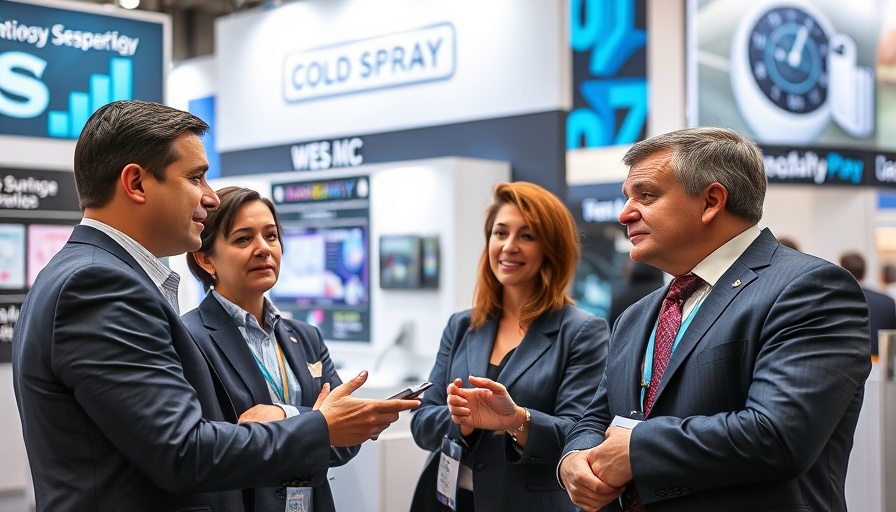
Cold Spray Technology: A Breakthrough in Manufacturing
Cold spray technology is revolutionizing parts production, especially in sectors like maritime and offshore energy. With the ability to manufacture components of up to 9 meters long, this innovative additive manufacturing strategy is allowing companies to produce essential parts faster and at a lower cost.
Leading in this transformation is Titomic, a company spearheading the adoption of cold spray solutions. As noted by Chris Myers, SVP of Global Growth, and James Caldwell, Regional Sales Manager for APAC, this technology is more than just a trend; it represents a shift towards efficiency and economic viability for industries that have historically faced high production costs.
Why Cold Spray Technology Matters
For maritime firms and offshore energy companies, quick access to replacement parts can mean the difference between profit and loss. Traditional manufacturing methods often involve extensive supply chains and lead times that can cripple a company's operational capacity. Cold spray technology mitigates these risks by facilitating on-site production, reducing dependence on external suppliers significantly.
How It Works: Simple Yet Effective
The principle behind cold spray technology is relatively straightforward: it involves the acceleration of granular material in a gas stream to create a solid, fully functional component through a process of deposition. What sets it apart from conventional methods is the fact that it occurs at lower temperatures, minimizing thermal distortion and ensuring a higher quality of the produced parts.
Economic Advantages: Faster and Cheaper
The efficiencies brought about by cold spray technology contribute not only to production speed but also to cost reduction. Companies can cut down on material waste, energy usage, and labor costs associated with complex manufacturing processes. As a result, the potential for financial savings and increased turnover pushes cold spray technology to the forefront of manufacturing innovation.
Practical Examples in Use
Several companies are already leveraging cold spray technology. It has been effectively used for repairs aboard ships and heavy machinery, allowing for immediate response to maintenance needs without lengthy downtimes. Quick repairs translate to enhanced operational readiness and reliability in critical industries.
Future Predictions: What's Next?
As cold spray technology evolves, it is poised to redefine manufacturing landscapes beyond maritime and offshore sectors. With advancements in materials and further integration of digital technologies, such as AI and IoT, the future could see broader applications, even in aviation and automotive industries. Businesses that adapt early using these smart innovations are likely to outperform competitors who cling to traditional methodologies.
The Bottom Line: Embrace Change for Growth
In an era where speed and cost-efficiency dominate, industries cannot afford to overlook the benefits brought by cold spray technology. As organizations like Titomic demonstrate its potential, other companies must reconsider their manufacturing strategies and embrace this disruptive technology to remain competitive.
With the maritime industry continually evolving, investing in innovative technologies like cold spray is essential. The future of manufacturing is not just about faster production; it's also about the sustainability and resilience of the supply chain that underpins it.
 Add Row
Add Row  Add
Add 




 Add Row
Add Row  Add
Add 

Write A Comment